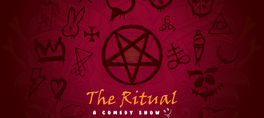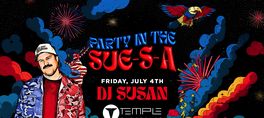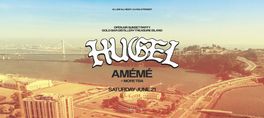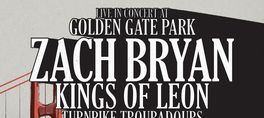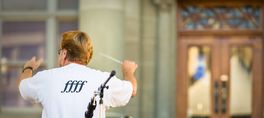This event has been POSTPONED.
In accordance with new social distancing recommendations issued by office of the Mayor London Breed on March 6, 2020, The CJM is canceling or postponing all tours, programs, and events through March 22, 2020. For more information on affected events and updates as the situation develops, please visit thecjm.org/visit.
At this time, The Museum remains open during its regular hours, and we invite you to explore our wonderful exhibitions. However, if you are sick, becoming sick, or experiencing any flu-like symptoms, we ask that you please reschedule your visit to The CJM.
***
What might Jewish food look like in the age of lab-grown brisket, cricket-flour babka, and algae bagels? How will the rules of kashrut apply to foods that the rabbis never imagined? Professor Nathaniel Deutsch moderates a conversation between professor Rachel B. Gross and Benjamin Aldes Wurgaft as they explore how we might approach our new food technologies.
Nathaniel Deutsch is a professor of history and director of The Humanities Institute and Center for Jewish Studies at the University of California, Santa Cruz, where he holds the Baumgarten Chair in Jewish Studies. Deutsch has written award-winning books on Gnosticism, Jewish mysticism, African American Islam and eugenics, and a Hasidic holy woman known as the Maiden of Ludmir.
Rachel B. Gross is the John and Marcia Goldman professor of American Jewish studies and an assistant professor in the Department of Jewish Studies at San Francisco State University. Her work as a scholar of religious studies focuses on the lives, spaces, and objects of twentieth-century and contemporary American Jews.
Benjamin Aldes Wurgaft is a writer, historian, and visiting assistant professor of history and social studies at Wesleyan University. His books include Thinking in Public: Strauss, Levinas, Arendt and the recently-published Meat Planet: Artificial Flesh and the Future of Food. Trained as an intellectual historian of modern Europe, Wurgaft has also written about food for magazines and newspapers since the early 2000s, and is keenly interested in food and the important philosophical, anthropological, and political questions it raises.
$8 Members; $16 general (includes Museum admission).
Presented by Contemporary Jewish Museum
show less
In accordance with new social distancing recommendations issued by office of the Mayor London Breed on March 6, 2020, The CJM is canceling or postponing all tours, programs, and events through March 22, 2020. For more information on affected events and updates as the situation develops, please visit thecjm.org/visit.
At this time, The Museum remains open during its regular hours, and we invite you to explore our wonderful exhibitions. However, if you are sick, becoming sick, or experiencing any flu-like symptoms, we ask that you please reschedule your visit to The CJM.
***
What might Jewish food look like in the age of lab-grown brisket, cricket-flour babka, and algae bagels? How will the rules of kashrut apply to foods that the rabbis never imagined? Professor Nathaniel Deutsch moderates a conversation between professor Rachel B. Gross and Benjamin Aldes Wurgaft as they explore how we might approach our new food technologies.
Nathaniel Deutsch is a professor of history and director of The Humanities Institute and Center for Jewish Studies at the University of California, Santa Cruz, where he holds the Baumgarten Chair in Jewish Studies. Deutsch has written award-winning books on Gnosticism, Jewish mysticism, African American Islam and eugenics, and a Hasidic holy woman known as the Maiden of Ludmir.
Rachel B. Gross is the John and Marcia Goldman professor of American Jewish studies and an assistant professor in the Department of Jewish Studies at San Francisco State University. Her work as a scholar of religious studies focuses on the lives, spaces, and objects of twentieth-century and contemporary American Jews.
Benjamin Aldes Wurgaft is a writer, historian, and visiting assistant professor of history and social studies at Wesleyan University. His books include Thinking in Public: Strauss, Levinas, Arendt and the recently-published Meat Planet: Artificial Flesh and the Future of Food. Trained as an intellectual historian of modern Europe, Wurgaft has also written about food for magazines and newspapers since the early 2000s, and is keenly interested in food and the important philosophical, anthropological, and political questions it raises.
$8 Members; $16 general (includes Museum admission).
Presented by Contemporary Jewish Museum
This event has been POSTPONED.
In accordance with new social distancing recommendations issued by office of the Mayor London Breed on March 6, 2020, The CJM is canceling or postponing all tours, programs, and events through March 22, 2020. For more information on affected events and updates as the situation develops, please visit thecjm.org/visit.
At this time, The Museum remains open during its regular hours, and we invite you to explore our wonderful exhibitions. However, if you are sick, becoming sick, or experiencing any flu-like symptoms, we ask that you please reschedule your visit to The CJM.
***
What might Jewish food look like in the age of lab-grown brisket, cricket-flour babka, and algae bagels? How will the rules of kashrut apply to foods that the rabbis never imagined? Professor Nathaniel Deutsch moderates a conversation between professor Rachel B. Gross and Benjamin Aldes Wurgaft as they explore how we might approach our new food technologies.
Nathaniel Deutsch is a professor of history and director of The Humanities Institute and Center for Jewish Studies at the University of California, Santa Cruz, where he holds the Baumgarten Chair in Jewish Studies. Deutsch has written award-winning books on Gnosticism, Jewish mysticism, African American Islam and eugenics, and a Hasidic holy woman known as the Maiden of Ludmir.
Rachel B. Gross is the John and Marcia Goldman professor of American Jewish studies and an assistant professor in the Department of Jewish Studies at San Francisco State University. Her work as a scholar of religious studies focuses on the lives, spaces, and objects of twentieth-century and contemporary American Jews.
Benjamin Aldes Wurgaft is a writer, historian, and visiting assistant professor of history and social studies at Wesleyan University. His books include Thinking in Public: Strauss, Levinas, Arendt and the recently-published Meat Planet: Artificial Flesh and the Future of Food. Trained as an intellectual historian of modern Europe, Wurgaft has also written about food for magazines and newspapers since the early 2000s, and is keenly interested in food and the important philosophical, anthropological, and political questions it raises.
$8 Members; $16 general (includes Museum admission).
Presented by Contemporary Jewish Museum
read more
In accordance with new social distancing recommendations issued by office of the Mayor London Breed on March 6, 2020, The CJM is canceling or postponing all tours, programs, and events through March 22, 2020. For more information on affected events and updates as the situation develops, please visit thecjm.org/visit.
At this time, The Museum remains open during its regular hours, and we invite you to explore our wonderful exhibitions. However, if you are sick, becoming sick, or experiencing any flu-like symptoms, we ask that you please reschedule your visit to The CJM.
***
What might Jewish food look like in the age of lab-grown brisket, cricket-flour babka, and algae bagels? How will the rules of kashrut apply to foods that the rabbis never imagined? Professor Nathaniel Deutsch moderates a conversation between professor Rachel B. Gross and Benjamin Aldes Wurgaft as they explore how we might approach our new food technologies.
Nathaniel Deutsch is a professor of history and director of The Humanities Institute and Center for Jewish Studies at the University of California, Santa Cruz, where he holds the Baumgarten Chair in Jewish Studies. Deutsch has written award-winning books on Gnosticism, Jewish mysticism, African American Islam and eugenics, and a Hasidic holy woman known as the Maiden of Ludmir.
Rachel B. Gross is the John and Marcia Goldman professor of American Jewish studies and an assistant professor in the Department of Jewish Studies at San Francisco State University. Her work as a scholar of religious studies focuses on the lives, spaces, and objects of twentieth-century and contemporary American Jews.
Benjamin Aldes Wurgaft is a writer, historian, and visiting assistant professor of history and social studies at Wesleyan University. His books include Thinking in Public: Strauss, Levinas, Arendt and the recently-published Meat Planet: Artificial Flesh and the Future of Food. Trained as an intellectual historian of modern Europe, Wurgaft has also written about food for magazines and newspapers since the early 2000s, and is keenly interested in food and the important philosophical, anthropological, and political questions it raises.
$8 Members; $16 general (includes Museum admission).
Presented by Contemporary Jewish Museum
show less
Date/Times:
Contemporary Jewish Museum
24 Upcoming Events
736 Mission St, San Francisco, CA 94103
The Best Events
Every Week in Your Inbox
From Our Sponsors
UPCOMING EVENTS
Great suggestion! We'll be in touch.
Event reviewed successfully.
